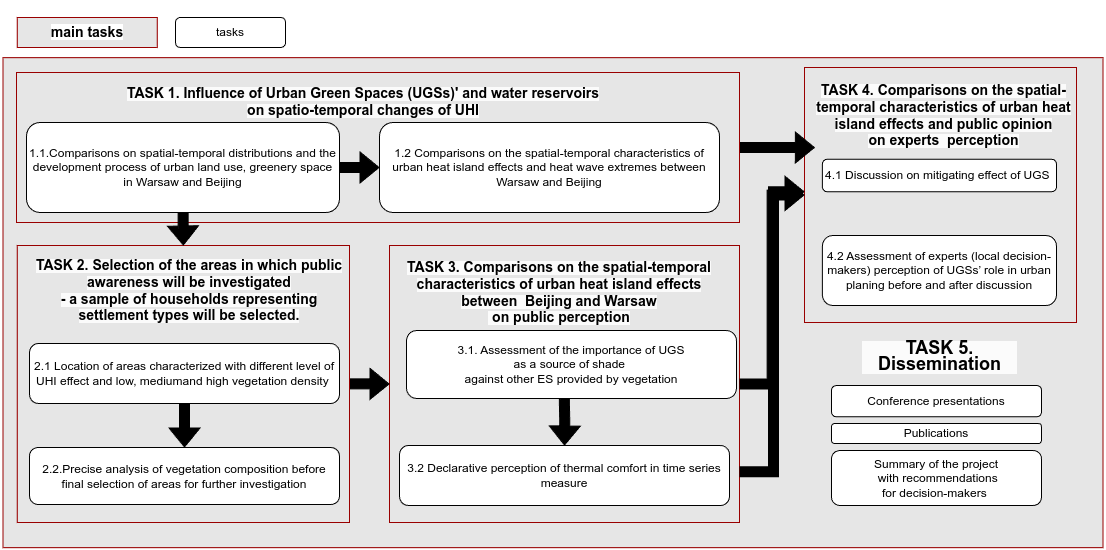Research tasks
The project aims to investigate the effect of the presence of urban green areas on the spatial-temporal extent of the urban heat island (UHI) in two cities - Warsaw and Beijing. The study includes both an analysis of the UHI phenomenon itself and an assessment of how residents perceive the problem. The survey of residents' perceptions includes two stages:
1) a one-time analysis of how important the presence of greenery as a source of shade is to them, compared to other ecosystem services associated with their presence;
2) an assessment of declarative thermal comfort in monitored over an extended period of time during the summer.
1) a one-time analysis of how important the presence of greenery as a source of shade is to them, compared to other ecosystem services associated with their presence;
2) an assessment of declarative thermal comfort in monitored over an extended period of time during the summer.
The overall analysis conducted is expected to allow the development of recommended strategies for both cities to mitigate the effects of UHI. Their impact on the opinion of experts (local decision-makers) regarding the role of urban greenery in the era of climate change will also be studied.
The results obtained will make it possible to assess to what extent the scale of the UHI problem, different in large cities (such as Warsaw) and mega-cities (represented by Beijing), influences the perception of the importance of urban greenery for microclimate regulation, both among residents and local decision-makers.
The results obtained will make it possible to assess to what extent the scale of the UHI problem, different in large cities (such as Warsaw) and mega-cities (represented by Beijing), influences the perception of the importance of urban greenery for microclimate regulation, both among residents and local decision-makers.
